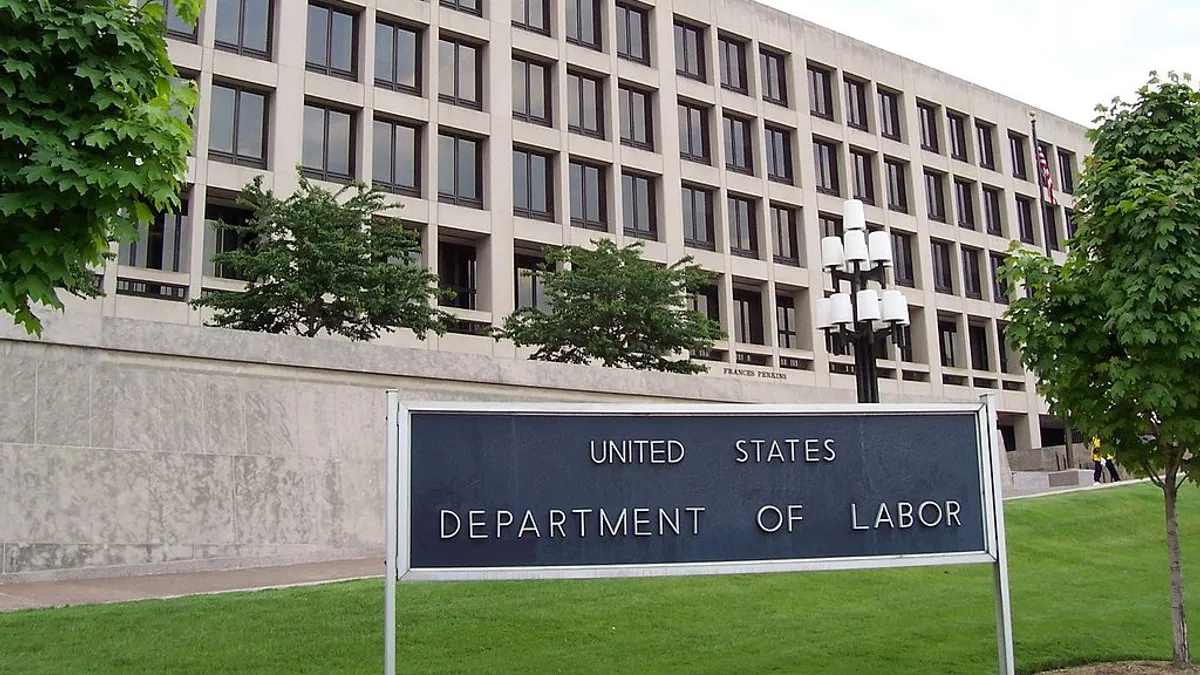Dive Brief:
- A federal judge in Texas issued a nationwide injunction late Tuesday against implementation of the U.S. Department of Labor's new overtime rule, according to Reuters. The rule was scheduled to take effect Dec. 1.
- U.S. District Judge Amos Mazzant said the regulation is unlawful because existing federal law uses more than just the level of pay to determine if someone is eligible for overtime and because the new rule created "a de facto salary-only test."
- The new regulation would have made salaried employees earning up to $47,476 per year eligible for overtime, up from the current exempt threshold of $23,660. The DOL can appeal the ruling, but the incoming Trump administration could drop an appeal.
Dive Insight:
The Associated Builders and Contractors, along with other industry groups including the National Association of Home Builders, filed a lawsuit against the DOL in September, in addition to another court action brought by 21 states. Both suits argued that the DOL overstepped its statutory reaches and that the rule change would create a compliance burden for many employers.
NAHB Chairman Ed Brady said in May that doubling the overtime salary threshold would result in salaried employees being bumped to an hourly wage and that the rule did not take into consideration that pay scales differ around the country. Brady referred to the DOL's enactment of the rule as "sheer arrogance." The Associated General Contractors of America's Brian Turmail told Construction Dive in May that the threshold increase is unreasonable and that the rule would force employers to devote more resources to compliance, not result in higher wages.
Construction groups were particularly concerned with the overtime rule's indexing provision, which permits the minimum salary requirements to be raised every three years. Years-long projects are common in the industry, and association representatives said the potential frequency of labor cost increases would make predicting overall project costs difficult for employers.
This is just the latest blow to the DOL and another victory for the construction industry, which has railed against rules it deems oppressive or burdensome for employers. Earlier this month, another Texas judge permanently blocked the agency's "persuader" rule, which would have mandated disclosure of attorney-employer communication around union organization efforts. The judge said that the rule was a potential violation of the First Amendment.
Also in Texas, another federal judge issued a preliminary injunction last month against the DOL's Fair Pay and Safe Workplaces order, also known as the "blacklisting" rule. The regulation requires that contractors reveal prior labor law violations — whether they have been adjudicated or not — as a prerequisite for being able to bid on government jobs.













